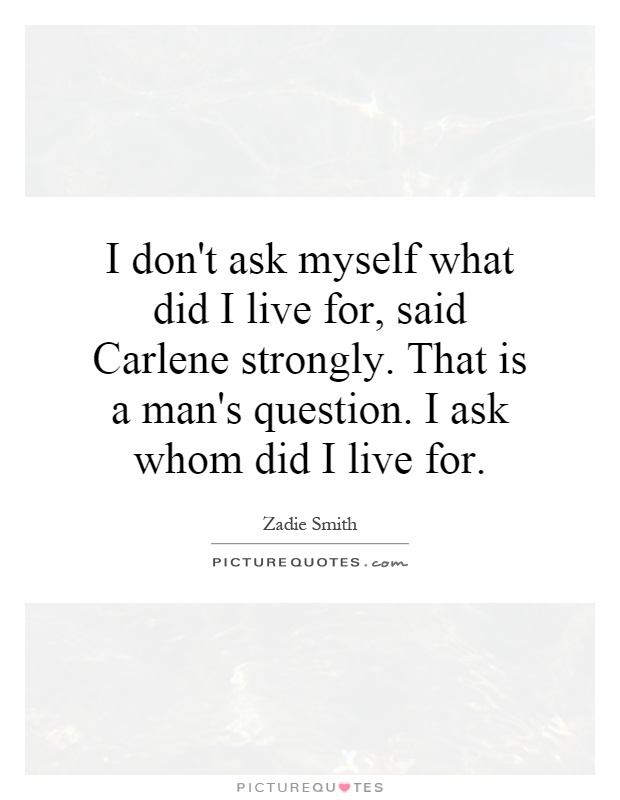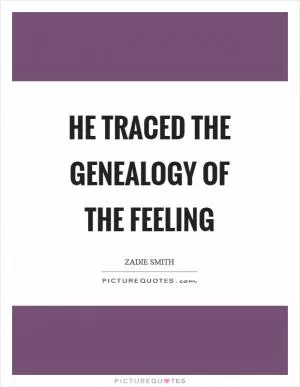I don't ask myself what did I live for, said Carlene strongly. That is a man's question. I ask whom did I live for

I don't ask myself what did I live for, said Carlene strongly. That is a man's question. I ask whom did I live for
In Zadie Smith's novel "On Beauty," the character Carlene embodies a strong sense of purpose and agency in her life. When she declares, "I don't ask myself what did I live for. That is a man's question. I ask whom did I live for," she is challenging traditional notions of self-reflection and identity. Carlene's statement highlights the importance of relationships and connections in shaping one's sense of self and purpose.Carlene's emphasis on "whom did I live for" suggests that her life is defined by the people she has loved and cared for. This perspective aligns with the novel's exploration of family dynamics, cultural differences, and the complexities of human relationships. Throughout the story, characters grapple with their own desires, ambitions, and insecurities, often finding solace and meaning in their connections with others.
Carlene's assertion also speaks to the broader themes of gender and power in the novel. By rejecting the idea that one's worth is determined by individual achievements or accomplishments, she challenges the patriarchal norms that often prioritize male experiences and perspectives. Instead, Carlene asserts her own agency and autonomy, defining her life in terms of the relationships that have shaped her identity.












 Friendship Quotes
Friendship Quotes Love Quotes
Love Quotes Life Quotes
Life Quotes Funny Quotes
Funny Quotes Motivational Quotes
Motivational Quotes Inspirational Quotes
Inspirational Quotes